Did you know that Greeks celebrate their name day as well as their birthday? In this insight into Greek culture, you will learn everything about name days in Greece!
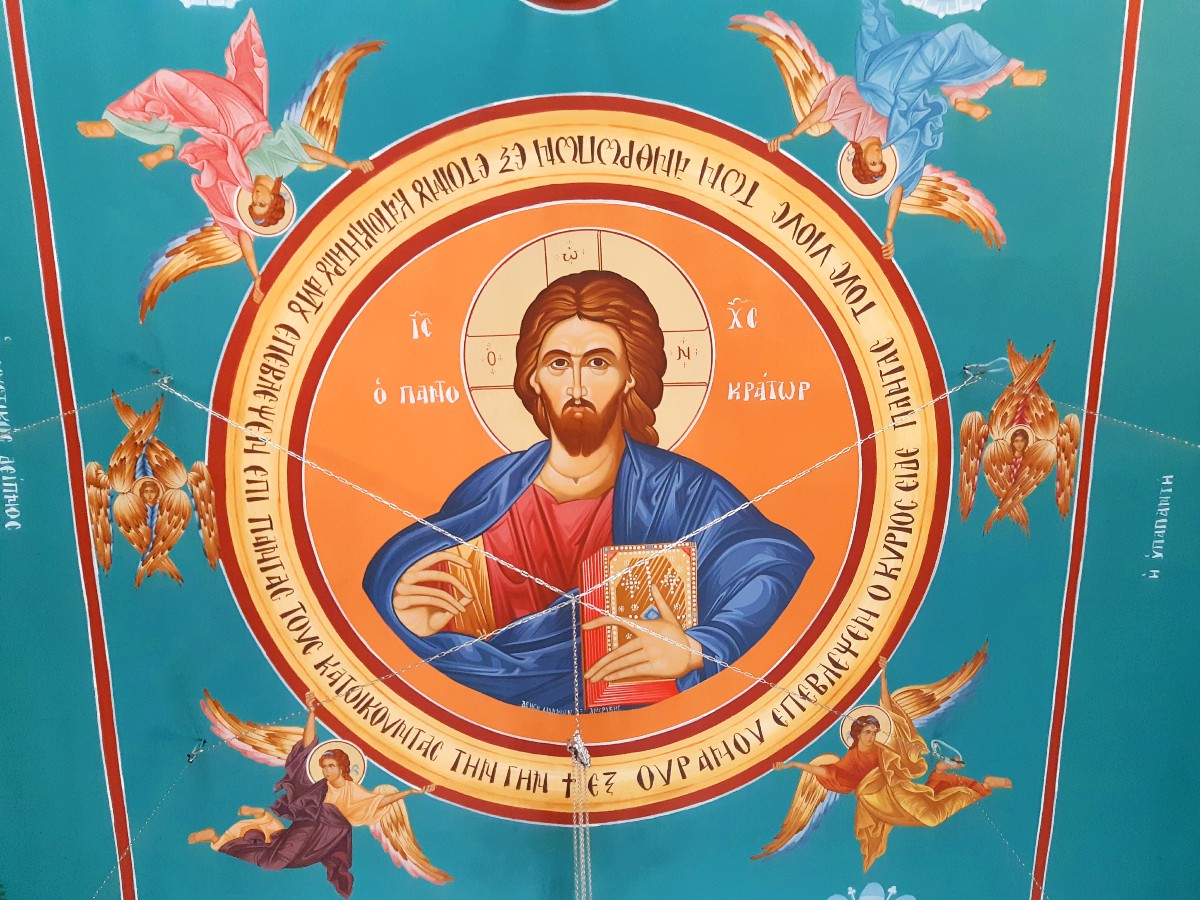
What exactly is a name day in Greece?
Many Greek people celebrate their given name, which they received during their christening. This is what we call a name day in Greece.
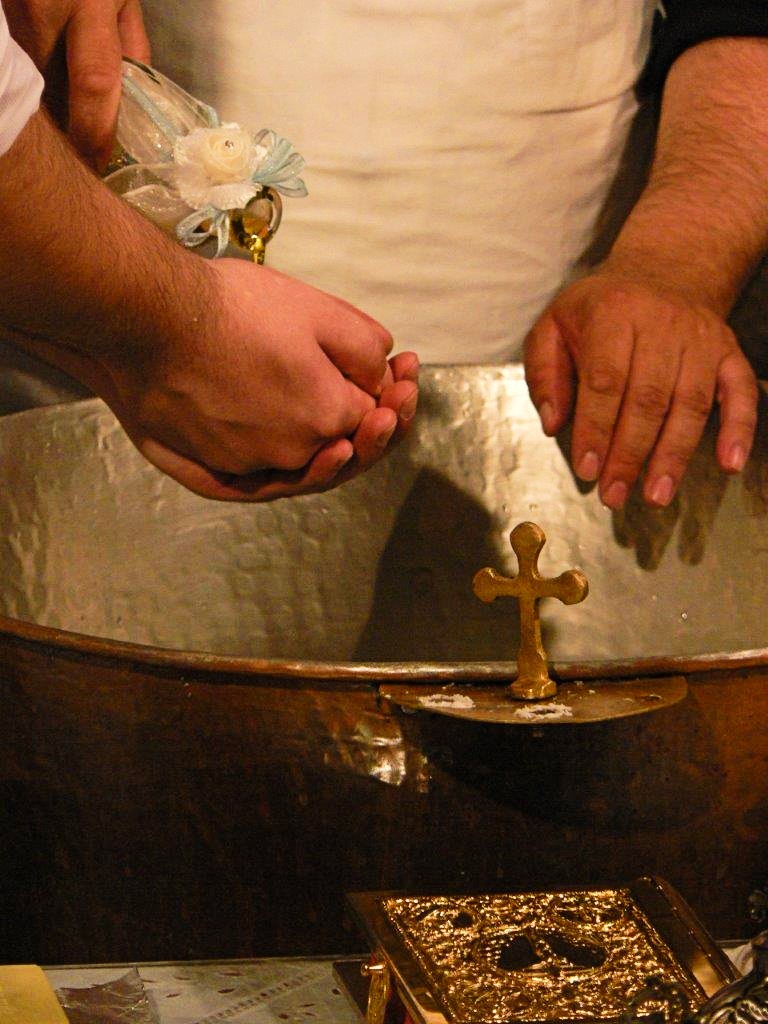
Greek name days are associated with the Greek Orthodox religion. Given names are traditionally passed on from generation to generation, i.e. from the grandparents to the grandchildren.
The Greek Orthodox tradition
Most Greek Orthodox names originally belonged to Christian saints or martyrs. Many of those holy people refused to reject their faith, and were murdered as a result.
The Greek Orthodox church usually commemorates those saints on the day of their death. This is otherwise known as their feast day, or name day.
The most popular Greek Orthodox names have an equivalent in English. A few examples are Georgios – George, Ioannis – John, Iakovos – Jacob – James, Eleni – Helen, and Maria – Mary.
How are you given your name day in Greece?
According to Greek tradition, children are often named after their grandparents, who in turn had been named after theirs.
This is a way to honour the ancestors, and it’s common in many cultures. It isn’t certain how far back this tradition goes here in Greece.
In many families, there are often many cousins with the same first name. These were all named after the same grandparent. Quite often, the cousins also have the same surname, which can get a bit complicated.
The best way to tell two cousins with the same name apart, is by their father’s name. This explains why you have to fill in “father’s name” in every single application in Greece.
So now you know why you can meet so many Kostas, Dimitris, Giorgos, Giannis, Elenis and Marias when you are visiting Greece!
The name day tradition
Tradition calls for passing first names from generation to generation. However, these days, some couples choose to give different names to their children. Therefore, the popularity of certain names has changed over the years.

There definitely aren’t as many young children named “Konstantinos” and “Eleni” as there were two generations ago. Instead, you may meet more children named “Marios”, “Zoe” and “Natalia”.
Surprisingly (or maybe not), the choice of the child’s name can cause a lot of trouble. It could be that the couple prefers a new name, but the grandparents insist that their name is passed on. Or even worse, it could be that the couple disagrees on the name.
This is a very sensitive issue, and can end up in several arguments. It can get even worse if the name to be passed on is somehow dated or even embarrassing – and yes, there are quite a few of those.
Baptism and christening in the Greek Orthodox tradition
The majority of Greeks living in Greece have been baptized and christened. These two major Orthodox sacred mysteries happen on the same day, very early in a child’s life.
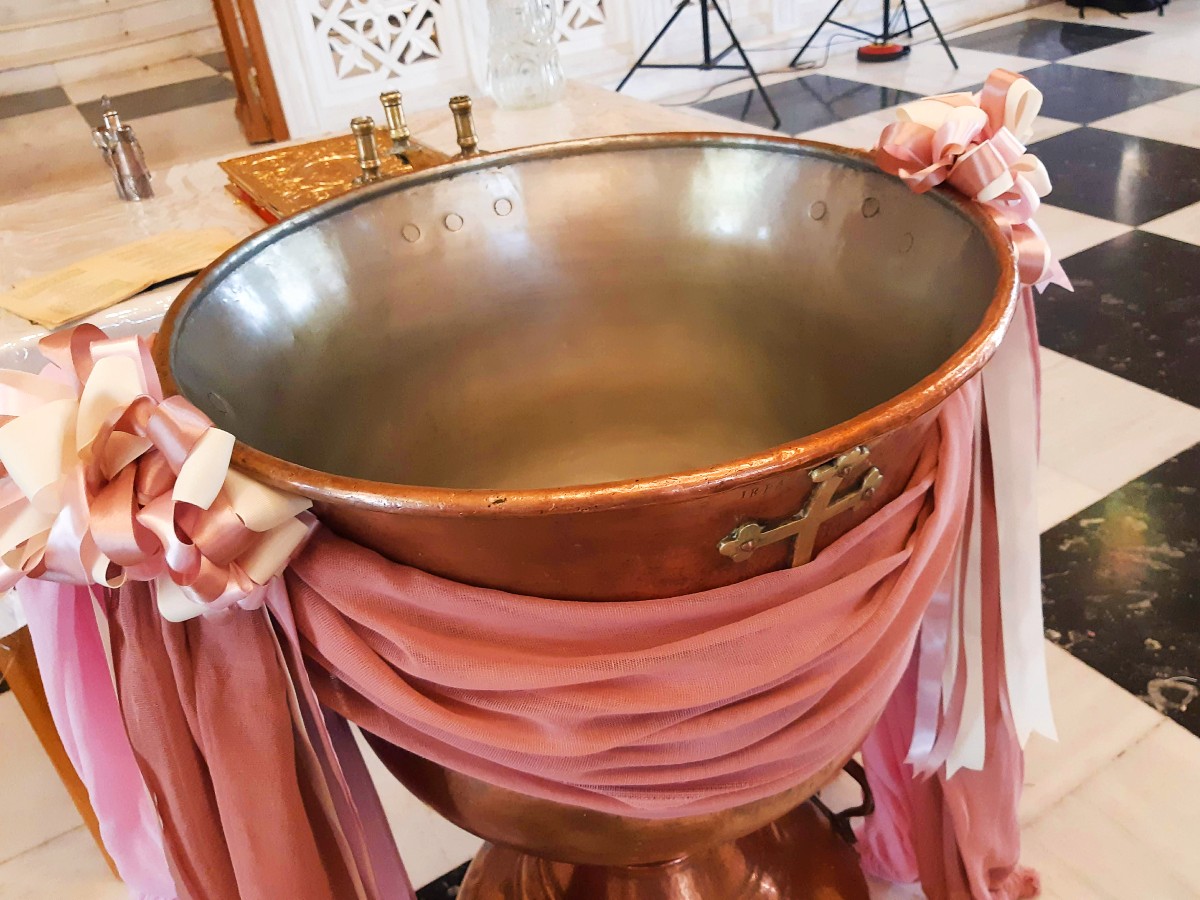
The toddler is dipped into a special basin reserved for this purpose, called kolympithra. The whole ceremony lasts for about an hour, and afterwards the child officially has a name.
Now comes the hard part, and everyone needs to stop calling them “baby”!
Are all Greeks named after an Orthodox saint or martyr?
While Christian names are common, not everyone in Greece is named after a saint. If the parents are not religious, it’s more likely that a child won’t be named after a saint.
Some Greeks have names going back to Ancient Greece. For example, you might meet someone who was named after an ancient Greek hero, like Agamemnon or Aias. Somewhat common ancient Greek names for women are Alkmene and Electra.
From Ancient Greece to Christian names
Certain names were used in both the ancient world and when Christianity came over.
So, a person named Sokrates / Sokratis wasn’t necessarily named after the famous Greek philosopher. He may have been named after the St Martyr Socrates, who was beheaded in Ankara in the 3rd century AD.
Other male names that already existed before Christianity and survived over the centuries are Heracles, Achilles and Plato.
In terms of female names, Dimitra, Athena, Aphrodite and Artemis were four of the ancient Greek goddesses. Their names are also used by the Orthodox church.
Fun fact: Greeks at the time of Homer had names relevant to their actions or their qualities. For instance, the name “Odysseus” can be translated as “the persecuted”.
Name Day Customs in Greece
There are certain customs associated with a name day in Greece. Traditionally, when it was someone’s name day, people would arrive uninvited at their house and would be treated to some food or dessert.
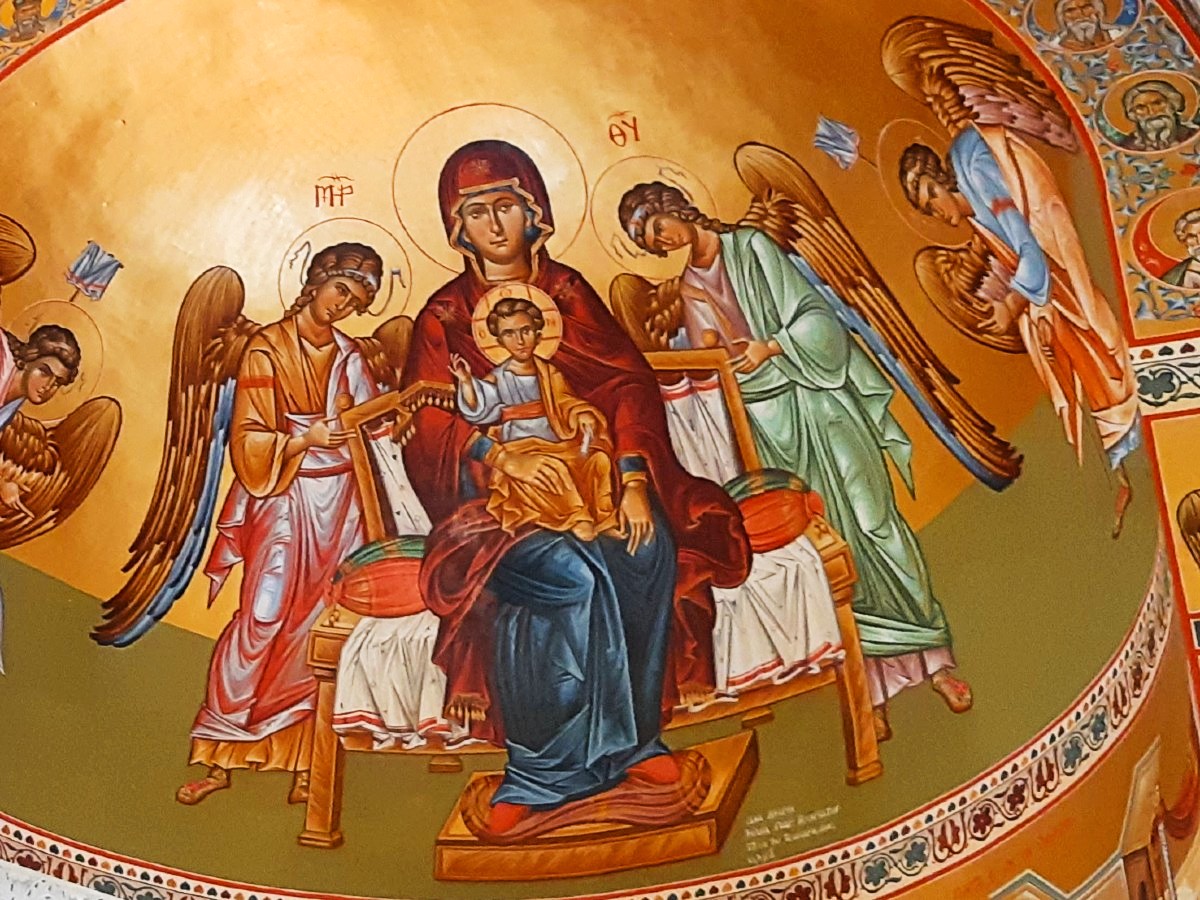
Nowadays, when many people work in offices or shops, their colleagues would expect them to bring a treat like pastries or chocolates.
Forgetting someone’s name day is considered rather insulting, particularly among the older generations. It’s not unusual for the phone to never stop ringing on a name day, with people calling up to say hi and have a quick chat.
These days, you’ll find that people’s Facebook walls are filled with name day greetings.
Why do so many Greeks have nicknames?
As many of us were given very long names, our parents often came up with a shorter version.
Some common nicknames for men include Konstantinos > Kostas, Panagiotis > Panos, Spyridon > Spyros and the incredible Charalambos > Babis .
It gets a lot more complicated with women though. Vassiliki, which is quite common, is often transformed to Vasso, Vassia, Vickey, Leila or even Vanessa (that’s me).
In the last decades, the chosen nickname was often influenced by a famous actor of the times, or a popular foreign person. Thank you Mrs Redgrave!
To be fair, some Greek names are very difficult for foreign visitors to remember, let alone pronounce. So it’s probably for the best.
And why do you actually celebrate name days in Greece?
To answer this question, we would need to dive in the official ecclesiastical tradition. Man is created in the image of God, and he is destined to celebrate and honour God. Man celebrates because Jesus Christ celebrates.
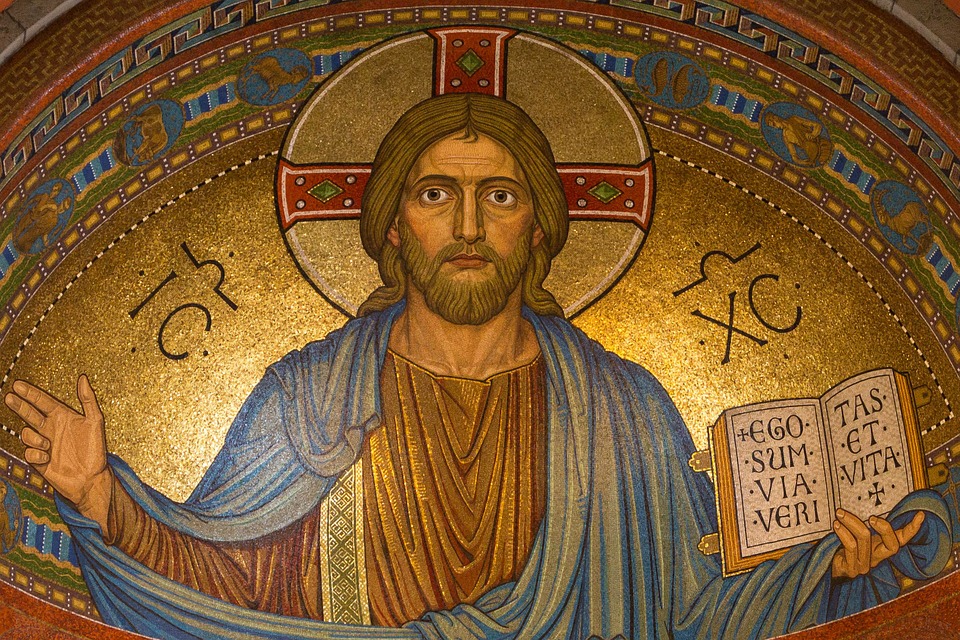
In this sense, honouring your Christian name can only be understood through religion and prayer. The joy of celebrating equals the joy of salvation.
Observing name days throughout the year is meant to reinforce the celebration of life. And the saint who you are named after, is your protector saint for life.
When are the most popular name days in Greece?
Looking at the orthodox calendar, we can see that at least one saint is celebrated nearly every day. There are a few dozens of popular names, and hundreds of very rare ones.
Let’s look into a list of some of the most important Greek name days:
January
- 1 – Vassilis, Basil, Vassiliki, Vasso, Vickey, Leila, Vanessa
- 6 – Theofania, Theofanis, Fotis, Fotini, Fani
- 7 – Ioannis, Yannis, Giannis, Ioanna, Gianna, John
- 17 – Antonios, Antonis, Antonia, Anthony
- 18 – Athanasios, Thanasis, Athanasia
- 20 – Efthimis, Efthimia
- 22 – Timotheos, Timothy
- 25 – Grigoris, Grigorios, Gregory, Gregorios
February
- 10 – Charalampos, Babis, Charalampia, Chariklia
- 17 – Theodoros, Thodoris, Theodora, Dora
March
- 19 – Chrissanthi, Chrissanthos
- 25 – Evangelos, Vangelis, Evangelia – this is the Annunciation Day
April
- 23 – Giorgos, Georgia, George. On years when Easter Sunday is after the 23rd April, we celebrate St George’s day on Easter Monday.
- Easter Sunday – Anastasis, Anastasia, Anestis, Lambros
- The Sunday after Easter Sunday – Thomas, Tom
May
- 5 – Irini
- 21 – Konstantinos, Konstantina, Kostas, Ntinos, Ntina, Nantia, Eleni, Elena. Like we say over here, this is a day when “half of Greece has a nameday”!
June
- 29 – Petros, Pavlos (St Peter and St Paul)
- 30 – Apostolis, Apostolos, Apostolia
- 8th Sunday after Easter Sunday – The church has provided for everyone who wasn’t named after a saint. They celebrate on Agion Panton day, which literally translates as “the All Saints Day”.

July
- 17 – Marina
- 26 – Paraskevi, Vivian, Vivi
- 27 – Pantelis
August
- 6 – Sotiris, Sotiria
- 15 – Maria, Despina and Panagiota (all for married women), Panagiotis
- 26 – Nathalia, Natalia
- 30 – Alexandros, Alexander, Alexandra, Sandra, Sander
September
- 14 – Stavros, Stavroula
- 17 – Sofia, Elpida, Agapi
October
- 26 – Dimitris, Dimitra, Mitsos
November
- 8 – Michalis, Michaela, Michael, Aggelos, Aggeliki
- 21 – Maria, Despina and Panagiota (all for single women)
- 25 – Katerina, Kaiti, Kate
- 30 – Andreas, Andrew, Andrianna, Andriani
December
- 6 – Nikolaos, Nikos, Nicholas, Nikoletta, Niki
- 9 – Anna
- 12 – Spyridon, Spyros
- 15 – Eleftherios, Lefteris, Eleftheria
- 22 – Anastasia
- 25 – Christos, Christina, Chryssoula (Christmas Day)
- 26 – Emmanouil, Manolis, Manuella, Emma
- 27 – Stefanos, Stephania, Steven

Frequently asked questions about name days in Greece
Here are a few more questions about Greek name days:
What are name days in Greece?
Many Greek people are named after an Orthodox saint. That saint is celebrated by the church on a specific day of the year. This is the day when people celebrate their name day. Traditionally, this is also the name of their grandfather or grandmother.
How do I find my Greek name day?
If you are named after a saint, your name day will be the day when the saint is celebrated by the church. As an example, if your name is Peter, your name day is on 29 June, which is St Peter’s feast day. Note that some saints have multiple feast days.
Do I have a name day?
If you were named after a Christian saint, you will have a name day, which is the day when the church celebrates this particular saint. However, many people are not named after a saint. These people wouldn’t necessarily celebrate their name day.
What is happy name day in Greek?
We say: Chronia polla ya ti yiorti sou.
Is name day and birthday the same?
No! The name day is the day when people celebrate their given name. This is related to a saint who the person was named after, during their baptism / christening ceremony. Not everyone in Greece celebrates their name day.
Name days in Greece
I hope you have enjoyed this article. Do you know a Greek person whose name isn’t mentioned in the list above? Feel free to ask about their name day in the comments!
Check out these other articles with insights into Greek culture and traditions:
- Greek Easter Traditions – Greek Orthodox Easter Food and Customs
- Food in Greece – Everything you should know about Greece food culture
- Greek drinks you need to try during your vacation in Greece
- The coffee culture in Greece
- Cost of living in Athens
- Useful words in Greek
- How to swear like a Greek
 Hi! I’m Vanessa from Athens. I was named after my grandmother, Vassiliki, but everyone has always called me Vanessa. Incidentally, my name day falls on New Year’s Day, and even my friends often forget it 🙂 For more information about Greece, please follow my FB page and FB group.
Hi! I’m Vanessa from Athens. I was named after my grandmother, Vassiliki, but everyone has always called me Vanessa. Incidentally, my name day falls on New Year’s Day, and even my friends often forget it 🙂 For more information about Greece, please follow my FB page and FB group.

Talking about embarrassing names for children one of the worst ones maybe the worst is Parthena (Παρθένα) literally meaning Virgin
Oh surely! I’ve thought of a few more but decided against mentioning them in the article… Fortunately, parents seem to be a little more sensible these days!